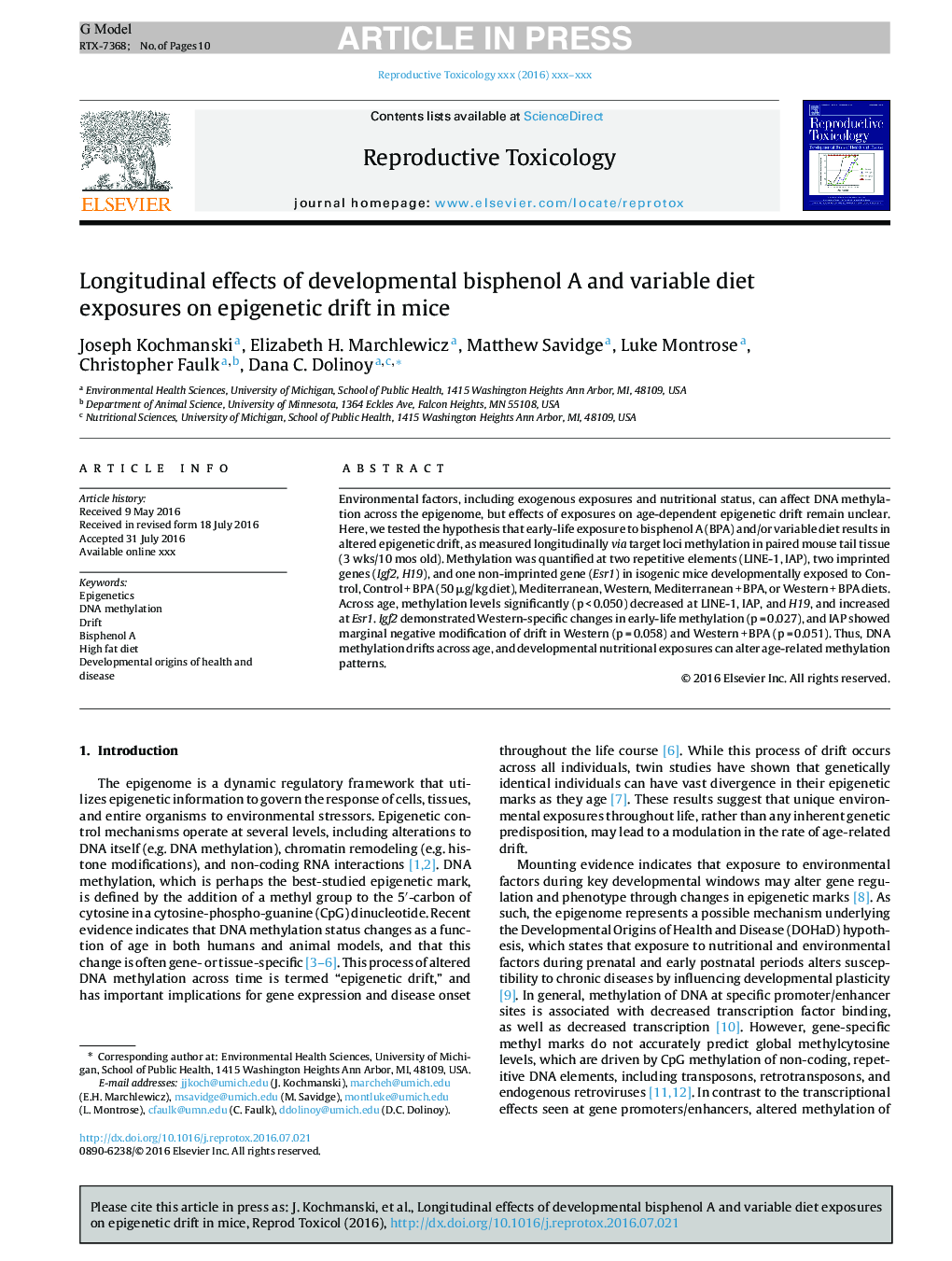| Article ID | Journal | Published Year | Pages | File Type |
|---|---|---|---|---|
| 5561644 | Reproductive Toxicology | 2017 | 10 Pages |
Abstract
Environmental factors, including exogenous exposures and nutritional status, can affect DNA methylation across the epigenome, but effects of exposures on age-dependent epigenetic drift remain unclear. Here, we tested the hypothesis that early-life exposure to bisphenol A (BPA) and/or variable diet results in altered epigenetic drift, as measured longitudinally via target loci methylation in paired mouse tail tissue (3 wks/10 mos old). Methylation was quantified at two repetitive elements (LINE-1, IAP), two imprinted genes (Igf2, H19), and one non-imprinted gene (Esr1) in isogenic mice developmentally exposed to Control, Control + BPA (50 μg/kg diet), Mediterranean, Western, Mediterranean + BPA, or Western + BPA diets. Across age, methylation levels significantly (p < 0.050) decreased at LINE-1, IAP, and H19, and increased at Esr1. Igf2 demonstrated Western-specific changes in early-life methylation (p = 0.027), and IAP showed marginal negative modification of drift in Western (p = 0.058) and Western + BPA (p = 0.051). Thus, DNA methylation drifts across age, and developmental nutritional exposures can alter age-related methylation patterns.
Keywords
Related Topics
Life Sciences
Environmental Science
Health, Toxicology and Mutagenesis
Authors
Joseph Kochmanski, Elizabeth H. Marchlewicz, Matthew Savidge, Luke Montrose, Christopher Faulk, Dana C. Dolinoy,
